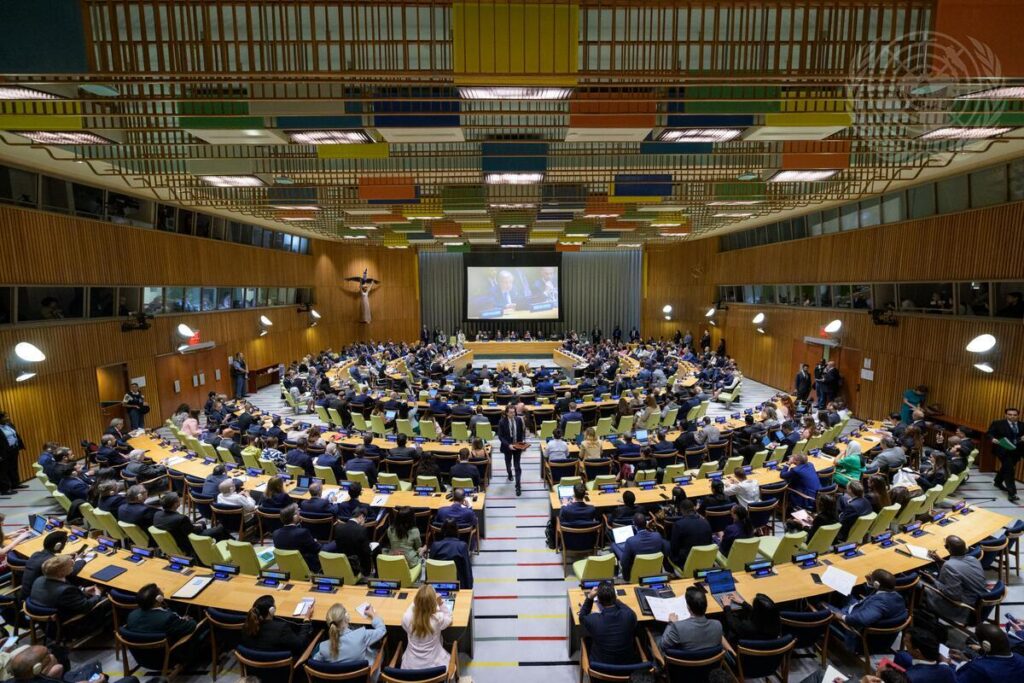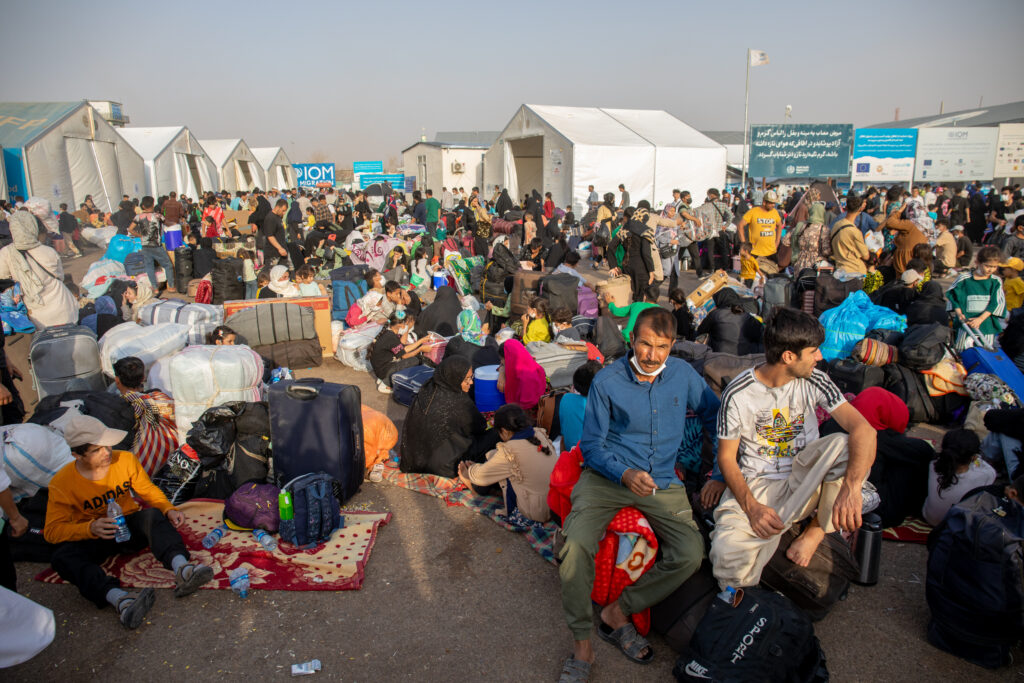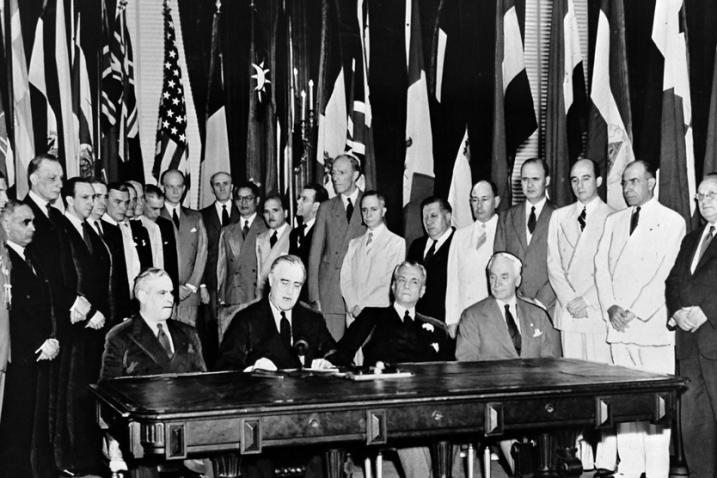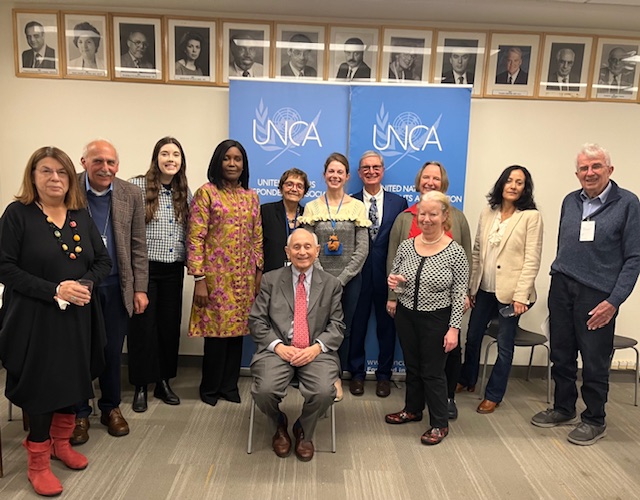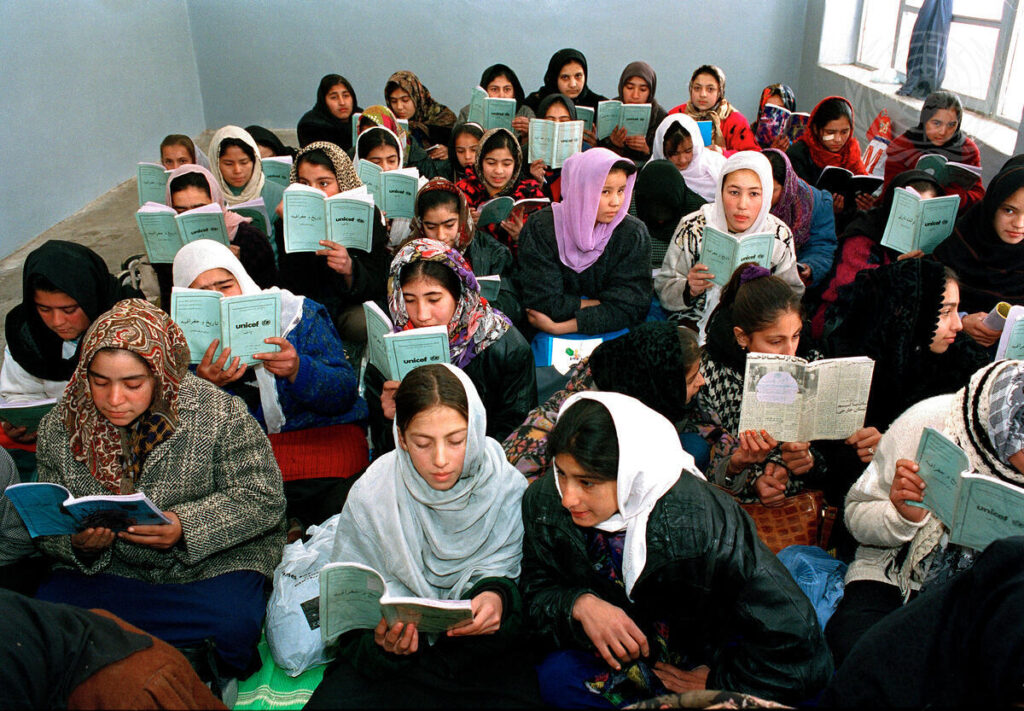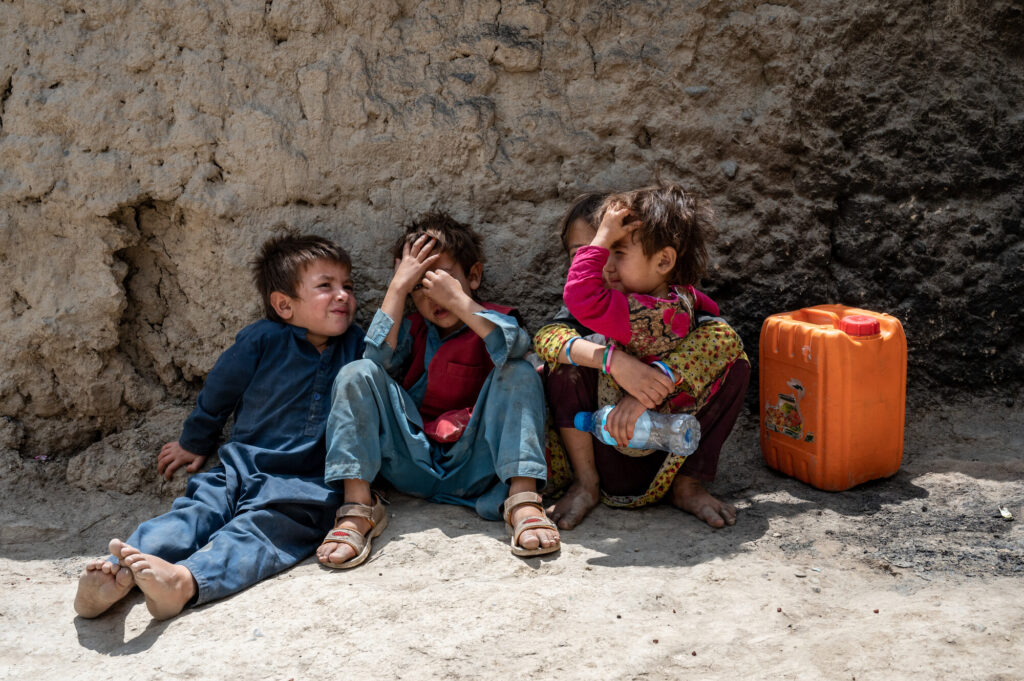UN calls for a world in which Israel and Palestine states coexist in peace to end conflict, deaths and starvation in Gaza
New York, 28 July 2025 – Diplomats met at the UN Headquarters to try to keep alive the decades-old resolution that called for an Israeli state and a Palestine state that can live in peace.
The three-day meeting in the UN General Assembly was chaired by Chaired by Jean-Noël Barrot, the Minister Foreign Affairs of France and Faisal bin Farhan Al Saud, Minister of Foreign Affairs of Saudi Arabia. The meeting is titled the High-Level International Conference for the Peaceful Settlement of the Question of Palestine and the Implementation of the Two-State Solution.
Israel and the United States have rejected the resolution. In Washington, the State Department spokesperson Tammy Bruce issued a statement that said, “The United States will not participate in this insult but will continue to lead real-world efforts to end the fighting and deliver a permanent peace. Our focus remains on serious diplomacy: not stage-managed conferences designed to manufacture the appearance of relevance.”
UN Secretary-General António Guterres opened the conference urging UN member states to take bold political action to salvage the two-state solution as negotiations have so far failed to produce a ceasefire to end the Israel-Hamas war that started on 7 October 2023.
“The truth is: we are at a breaking point. The two-state solution is farther than ever before,” the UN chief said. “We know that the Israeli-Palestinian conflict has endured for generations, defying hopes, defying diplomacy, defying countless resolutions, defying international law. But we also know its persistence is not inevitable. It can be resolved. That demands political will and courageous leadership, and it demands truth.”
“Unilateral actions that would forever undermine the two-State solution are unacceptable and they must stop,” Guterres said. “These are not isolated events. They are part of a systemic reality that is dismantling the building blocks of peace in the Middle East.”
France’s President Emmanuel Macron has publicly supported the two-state solution and said France will officially recognize the Palestinian state at the UN General Assembly annual session that will open in mid-September.
Barrot, the French foreign minister, said, “The European Commission, on behalf of the EU, has to express its expectations and show the means that we can incentivize the Israeli government to hear this appeal.”
Barrot said the conference in New York aimed at reversing “the trend of what is happening in the region — mainly the erasure of the two-state solution, which has been for a long time the only solution that can bring peace and security in the region.”
UN News reported that Mohammed Mustafa, Prime Minister of the State of Palestine, told the conference: “We have been waiting for long years for a genuine international intervention that would move us towards a peaceful, just and comprehensive solution to the Palestinian question. In this period of waiting, we have lost what we have lost, and we have suffered immensely.”
Mustafa said conference is “a turning point in which positions and declarations are translated into immediate and unprecedented practical steps to stop the genocide and end the Israeli occupation. The world must act to stop the aggression, starvation and displacement, and send a clear message: Enough disregard for the life and dignity of Palestinians — Palestinians are human beings.”
United Nations journalists – United Nations journalists – United Nations journalists
United Nations News – United Nations News – UN Correspondents Association – UNCA Awards

